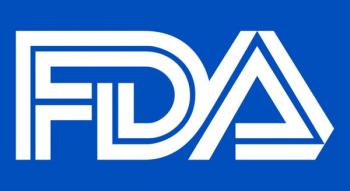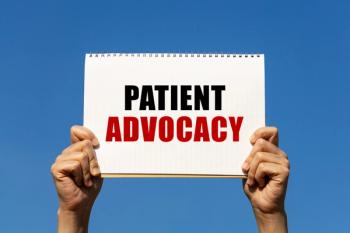
Children with atopic dermatitis (AD) are more likely than children without AD to react to a patch test and should be referred to a specialist for evaluation.

Children with atopic dermatitis (AD) are more likely than children without AD to react to a patch test and should be referred to a specialist for evaluation.

Here’s what you need to know and do considering the DOJ’s and HHS’s drastically expanded use of digital tools to investigate and prosecute those who work in the field of healthcare, including innocent practices and providers.

The FDA approved the first biosimilar of the arthritis medication Actemra, as well as plaque psoriasis drug Zoryve for children. The agency issued a complete response letter for lebrikizumab in atopic dermatitis and for liquid formulation of botulinum toxin for frown lines, and assigned a review date for a gene therapy for a rare immune disorder. Additionally, Takeda plans to withdraw the oncology drug Exkivity from the market while Coherus resubmits BLA for Udenyca OnBody.

Authors of a recent review express that ferroptosis inhibition may be a promising pathway for treating and preventing male reproductive disorders.

A hemophilia expert makes some comparisons between the two approved gene therapies for hemophilia.

A new review and analysis suggests a combination treatment regimen for children in acute liver failure due to autoimmune hepatitis may help them maintain native liver survival.


Researchers of a phase 3 trial aimed to determine whether statins, specifically pitavastatin, could reduce the incidence of major adverse cardiovascular events among HIV patients, as the risk of cardiovascular disease is increased in those with HIV infection.

To maintain patient satisfaction and regulatory compliance and reduce potential clerical errors while maintaining high productivity, you can ease your staff’s burdens by automating your practice’s workflows and empower your staff to do more in less time.

It differs from the Pfizer and Moderna vaccine. Instead of using mRNA, the Novavax vaccines consists of proteins found in the spikes of the COVID-19 vaccine combined with an adjuvant made from the bark of a tree that grows in Chile.

ICER has weighed in on two of the 10 drugs selected for negotiations: Eliquis and Xarelto, which are among Medicare Part D’s highest spending drugs.

In a confirmatory trial, Exkivity did not meet the primary endpoint in treating patients with non-small cell lung cancer with EGFR exon 20 mutations. It will remain available while Takeda works with the FDA on withdrawal timing.

Patient organizations should focus on how they can be the most effective by leveraging their strengths to uncover new research opportunities.

The FDA has approved several new therapies this week, including a new two-component Pompe therapy, an extended-release drug for major depression without sexual side effects, and an eye drop for drug-induced dilation. Additionally, the agency has set review dates for several products, including odronextamab for blood cancers, sotatercept for pulmonary arterial hypertension, and Dupixent in young children with eosinophilic esophagitis.

Jeremy Berk, senior vice president of Risk Adjustment Solutions for PopHealthCare and Emcara Health, shares how plans must conduct a detailed analysis of how changes to risk adjustment models impact your plan in order to set an effective go-forward strategy.

Study links inflammatory bowel disease diagnosis to increased gout risk, with Crohns disease and ulcerative colitis linked to 68% and 38% increases in likelihood of developing gout, respectively, relative to counterparts without IBD.

Two posters presented at the European Respiratory Society International Congress found use of Dupixent improved lung function by 12 weeks with sustained responses.

Svetlana Mojsov, Ph.D., was a key part of the team that discovered the function of the hormone glucagon-like peptide 1 (GLP-1) and its role in diabetes and weight loss.

Goldsack discussed applying AI and full-stack virtual care-first solutions in oncology and the Digital Medicine Society’s role in CancerX, one of the Biden administration’s Cancer Moonshot initiatives in a recent interview with Managed Healthcare Executive.

Goldsack also pointed to Podimetrics and its SmartMat product, which detects the warning signs of diabetic foot ulcers, as a digital health success story: “That is the sort of thing we want to see.”

Goldsack also explained the Digital Medicine Society’s role as a convener and developer of evidentiary frameworks in a recent interview with Managed Healthcare Executive.


Two possibly curative gene therapies for the disease, which disproportionately affects Black people, are under consideration by the FDA.

The FDA has approved GSK’s myelofibrosis drug, as well as a new indication for Jardiance and a new dosing regimen for Talicia. The agency has also issued a complete response letter for epinephrine nasal spray and assigned a review date for the gene therapy atidarsagene autotemcel.

Aside from leading Upfront Healthcare’s Bartosch Patient Activation Institute, Lindsay Zimmerman, Ph.D., M.P.H., vice president of the organization, said treating herself to a snack like popcorn dressed in parmesan cheese while in bed is a guilty pleasure for her.

Swoop, a New York-based company, has launched an algorithm that may help people with multiple sclerosis take medications as prescribed.

Lindsay Zimmerman, Ph.D., M.P.H., vice president of Bartosch Patient Activation Institute at Upfront Healthcare, is one of the 12 up-and-coming leaders in healthcare included in the annual Managed Healthcare Executive feature.

An analysis by 3 Axis Advisors has found that there is a large variability in pharmacy reimbursement of prescription drugs depending on PBM contracts with insurers. This creates a system with huge inconsistences on the prices of both generics and branded products.

Boston Medical Center was named the most racially inclusive hospital by the Lown Institute. A leader of the hospital’s equity efforts touts the value of virtual care.

Findings presented at the European Respiratory Society found that using Dupixent to treat acute exacerbations of chronic obstructive pulmonary disease (COPD) reduced duration of systemic corticosteroid days.